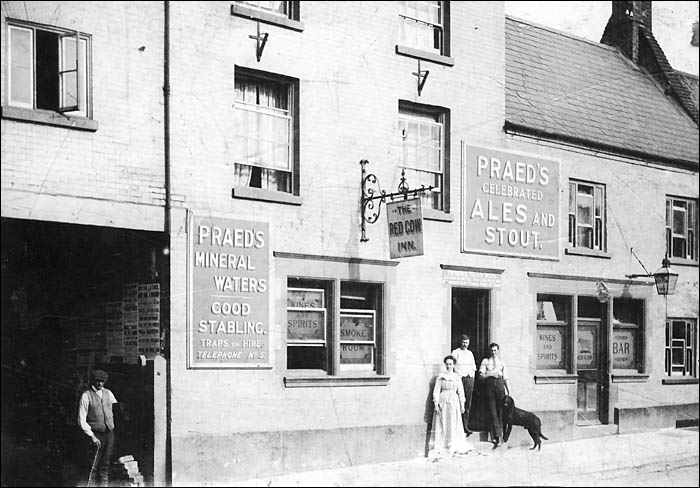|
|||
|
|||
Thomas Capps and George Dickenson were indicted for stealing £11, the property of William Bollard on the 15th of October. - Mr Sargeaunt was for the prosecution. - Mr W. Bollard of Little Harrowden, said on the morning of 5th October he was in the Red Cow public house at Burton Latimer, and about one o'clock he went into the tap room and saw the prisoners there. Was there some hours, and was drinking with them until four o'clock. About that time Capps took hold of him and pushed down on the floor. He had a leathern purse in his pocket, containing ten sovereigns and two half sovereigns. When Mr Bollard fell the purse fell out of his pocket and onto the floor, and Capps took some of the money out, and offered the purse to witness, and he told Capps that he would not take it, because he had taken some of the money. Capps then gave the purse to Dickenson who took it. Bollard did not have charge of the purse or money again, he then went home and the next morning he gave information to the police.EMMA MASON (servant to Mr Quincey): On the day in question she saw Capps push Bollard to the floor, and then turn him over. Bollard's purse fell to the floor, and Capps picked up the purse and took some money out of it, and then put the purse on the table near Bollard's coat. Heard the money jink in his hand after the purse was laid down. Capps offered it to the proscecutor and he refused to take it.HENRY EAVES (mason, living in Burton Latimer): Corroborated the evidence given by the previous two witnesses.EMMA MOORE (sister of the landlady of the Duke's Arms): The prisoner Dickenson called at her sister's public house, and had asked to be trusted for some beer, and was refused. In the evening he again called for some beer, and gave a sovereign in payment, and also asked her to change another sovereign, but she could not.INSPECTOR NORMAN (present at Kettering lock-up when prisoners were there and after they were committed to trial): Dickenson, in the presence of Capps, made a statement to the effect effect that he was at work at the back of the house, when Capps ran out and said he had Bollard's purse. Capps gave him two sovereigns, and the remainder he kept in the purse, when Eaves arrived on the scene and wanted to go shares in the money. Capps then made a counter statement, throwing the robbery onto Dickenson, who he said gave him the purse after he had taken all the money out of it. This was the case for the prosecution.The prisoner Capps addressed the jury, and admitted having a sovereign and a half as a "matter of duty to myself." and argued that the prosecutor was very much to be censured for having laid the temptation before them, which, he regretted to say, he was weak enough to fall into. He hoped the Court would severely censure the prosecutor for his carelessness and be lenient with him.Dickenson, in his defence, admitted having had two sovereigns of the money, but attributed great blame to the prosecutor for his carelessness in swinging his purse about.The Chairman briefly summed up, and the jury returned a verdict of guilty against both prisoners, - Capps pleaded guilty to a previous conviction for felony in 1862, for which he was sentanced to seven days' imprisonment - the jury recommended both prisoners to mercy, and in this Mr Sargeaunt for the prosecution, joined - The Chairman, in passing sentence, said he regregretted he could not pass the same sentence to the prosecutor for being drunk that he was about to pass upon the prisoners, as he had acted most disgracefully. The prisoners were then sentenced to 21 Days' Imprisonment with Hard labour.Thomas Capps seemed to have a reputation for drunken behaviour; in 1898 he was charged along with William Maycock of stealing three ducks which were the property of Edward Quincey Junior. Capps was acquitted, but Maycock was sentenced to three months imprisonment.Again in 1870, Capps was accused of being drunk and disorderly. He came into the Duke's Arms and asked for a pint of beer, the servant girl took it to him, and when she laid it down Capps said the carpenter would pay for it. She went and told the landlady, Mrs Brown, who went right to him and asked for the money. Capps stated that everytrhing would be alright, whereupon Mrs brown said he should not have ordered if he could not pay and immediately sent for the police. When they arrived Capps was gone. In his defence, Capps said that Mrs Brown came in , abused him and struck him. He then went and got the money and paid 2 1/2 d in about five minutes. A witness was brought to prove he saw Mrs Brown strike him. The case was dismissed with Brown ordered to pay costs. |
|||
